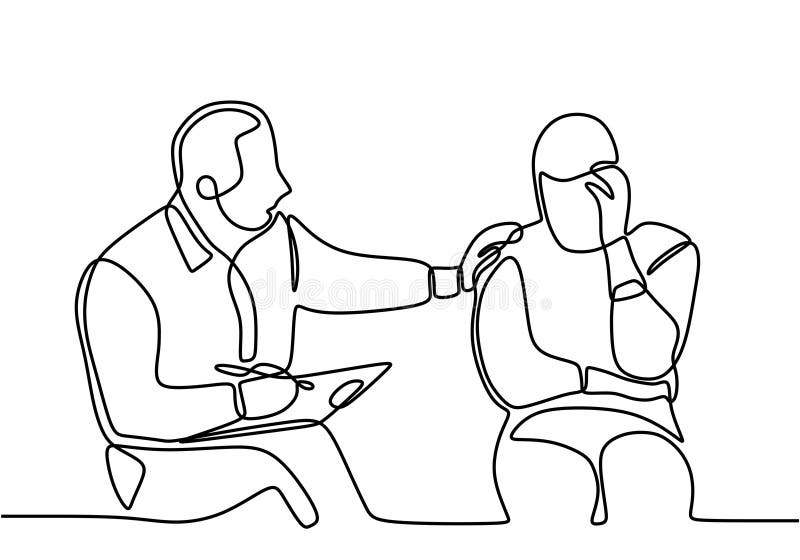The Value of Seeking Aid from the Best Psychologist in Delhi for Stress Administration
The Value of Seeking Aid from the Best Psychologist in Delhi for Stress Administration
Blog Article
Psych Therapy: A Comprehensive Overview to Strategies and Results

Cognitive-Behavioral Treatment
Cognitive-Behavioral Treatment (CBT) is a commonly used psychotherapeutic approach that focuses on recognizing and changing dysfunctional reasoning and actions patterns. Established in the 1960s by Aaron T. Beck, CBT combines behavioral and cognitive theories to attend to various mental wellness problems, consisting of depression, stress and anxiety, and stress-related disorders.
CBT is defined by its structured, ambitious nature. Therapy generally entails a collaborative process between the therapist and customer, where specific problems are identified, and useful techniques are created to address them. Techniques such as cognitive restructuring, direct exposure therapy, and skill-building exercises are commonly employed. Cognitive restructuring includes tough and modifying adverse idea patterns, while exposure therapy aims to minimize worry and stress and anxiety with steady exposure to feared circumstances or items.
Evidence-based study sustains the efficacy of CBT for a wide range of mental disorders - Best Psychologist in Delhi. Its focus on skill acquisition and self-help techniques encourages clients to proceed progression individually after therapy ends. The flexibility and efficiency of CBT have actually made it a foundation in contemporary psychotherapeutic practice
Psychodynamic Approaches
Rooted in the very early theories of Sigmund Freud, psychodynamic approaches concentrate on checking out the subconscious mind and its impact on habits and emotions. These techniques aim to reveal surprise thoughts and sensations that may be driving maladaptive behaviors and emotional distress. Central to this method is the principle of internal conflict, often originating from unsettled past experiences, especially those from childhood.
Therapists using psychodynamic strategies utilize several essential approaches, consisting of free organization, where people are motivated to talk freely to expose subconscious material, and dream evaluation, which analyzes the concealed content of dreams. Furthermore, the expedition of transfer and countertransference dynamics within the therapeutic connection is important. These interactions can offer understandings into the person's internal world and relational patterns.
Psychodynamic therapy is commonly longer-term contrasted to other modalities, offering a comprehensive and deep understanding of the individual's mind. Research study shows that it can be specifically effective for complex psychological health and wellness concerns, such as personality conditions and chronic anxiety. By promoting self-awareness and psychological understanding, psychodynamic treatment looks for to bring subconscious product to consciousness, allowing individuals to attain significant and enduring modification in their lives.
Humanistic Methods
Structure on the foundations laid by psychodynamic methods, humanistic techniques offer a distinct perspective concentrated on individual possible and self-actualization. Stemming in the mid-20th century, these techniques prioritize the fundamental goodness and development capacity of individuals, emphasizing an all natural sight of human experience. Key figures such as Carl Rogers and Abraham Maslow have substantially influenced this therapeutic approach, which incorporates techniques like client-centered treatment and Gestalt therapy.
Client-centered therapy, created by Rogers, plays a crucial role in humanistic techniques. The therapist's duty is more of a facilitator than an authority, motivating customers to harness their internal sources for recovery.
Gestalt treatment, an additional crucial humanistic method, stresses present moment understanding and the assimilation of mind and body. By concentrating on the "here and now," clients gain higher insight right into their present feelings and actions. Methods such as role-playing and directed visualization are usually employed to aid clients gain a much deeper understanding of themselves, ultimately causing boosted self-awareness and satisfaction.
Integrative Treatments
Integrative treatments represent a synthesis of various therapeutic techniques tailored to fulfill the unique requirements of each customer. This technique recognizes the intricacy of human psychology and the complex nature of psychological wellness concerns. By incorporating aspects from various colleges of psychiatric therapy-- such as cognitive-behavioral therapy (CBT), psychodynamic treatment, and humanistic techniques-- integrative therapies use an even more all my site natural and flexible therapy paradigm.
Specialists of integrative therapy assess each customer's specific requirements, symptoms, and individual background to develop a personalized treatment strategy. This customized strategy improves the capacity for therapeutic success by resolving the source of emotional distress and advertising overall wellness. Strategies could include mindfulness workouts, cognitive restructuring, and psychological handling, each picked to target different facets of the customer's issues.
In addition, integrative therapies stress the therapeutic relationship, checking out the client-therapist bond as a critical element of reliable therapy. This partnership promotes a supportive atmosphere where customers really feel safe to check out and address their problems. The versatility of integrative therapies makes them appropriate for a wide variety of problems, including stress and anxiety, depression, injury, and interpersonal difficulties, thereby enhancing their applicability and effectiveness in diverse professional settings.

Gauging Treatment Results
Assessing the efficiency of psychotherapy is vital for both customers and clinicians to ensure that the therapy is yielding the desired end results. To attain this, various approaches and devices are employed to determine treatment outcomes methodically. Standard assessment tools, such as the Beck Anxiety Stock (BDI) and the Generalized Stress And Anxiety Condition 7 (GAD-7), give measurable data on symptom extent and modifications with time.
Along with standardized devices, qualitative methods like client self-reports and medical interviews provide beneficial understandings right into the personal experiences and regarded development of customers. Frequently arranged evaluations, generally at the beginning, omphalos, and end of treatment, assistance in tracking the trajectory of improvement or identifying locations needing change.
Outcome dimension is not limited my website to symptom reduction; it likewise includes functional renovations in day-to-day live, such as far better interpersonal relationships, increased work productivity, and boosted overall well-being. Modern advancements in electronic wellness have introduced mobile applications and on the internet platforms that promote real-time surveillance and feedback, better improving the analysis procedure.
Ultimately, a thorough strategy to gauging treatment outcomes makes sure that restorative interventions work, effective, and customized to satisfy the private requirements of customers, thus enhancing the total healing experience.
Conclusion
Psychiatric therapy supplies a diverse array of methods focused on addressing details psychological wellness problems and enhancing total health. Cognitive-Behavioral Therapy and psychodynamic strategies target unconscious impacts and dysfunctional thoughts, respectively. Humanistic strategies concentrate on personal growth and self-actualization, while integrative treatments integrate multiple approaches for tailored therapy strategies. Reviewing therapy results through qualitative additional resources techniques and standardized evaluations ensures a comprehensive understanding of performance, ultimately leading clients toward enduring mental health and wellness improvements.
From the organized method of Cognitive-Behavioral Therapy (CBT) to the deep expedition of the subconscious in psychodynamic treatment, each technique brings unique benefits. Its emphasis on skill acquisition and self-help techniques equips customers to proceed development individually after therapy concludes (Best Psychologist in Delhi). Secret figures such as Carl Rogers and Abraham Maslow have actually significantly influenced this therapeutic approach, which incorporates approaches like client-centered treatment and Gestalt treatment

Report this page